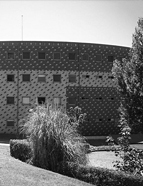

In the same vein, political power openly professed a firm belief in the utility of legal history studies. On 25 February 1774, in response to a letter from the Reformer Rector, D. Francisco de Lemos de Faria Pereira Coutinho, dated 8 February of that same year, the Marquis of Pombal praised the value of national law and the history of Portuguese law as a fruitful consortium. Since the inception of the reform efforts, D. Francisco de Lemos had become alert to the importance of history in legal education. As he would later highlight in his Relação Geral do Estado da Universidade [General Report on the State of the University], a testament of sorts prepared while he was the privileged executor of the directives contained in the Statutes of 1772, a good jurist must necessarily be profoundly versed in natural jurisprudence and history, as these areas underpin both canon and civil law.
In the field of Portuguese legal history, where the programme was scrutinised so meticulously, it was imperative to ensure it was promptly translated into a compendium form. Faced with the almost desolate panorama of national literature in this field, the Statutes decreed that the teacher of national law history would be obliged to produce an elementary manual for this discipline. This was because, "among the many Systems, Compendia, and Summaries of Roman Law History, there is none suitable for the use of the lessons of this discipline; not only because there is none in which the History of Portuguese Law is written, but also because there is none that encompasses all three of the inherent and inseparable objects of said History; and that sheds the necessary light on all the aforementioned parts of said History that discuss them: The teacher shall be obliged to create an Elementary Compendium of the said History of Law, and of all its parts, suitable for and tailored to the annual Lessons of this discipine."
Regarding the aforementioned directive, Mello Freire became its most distinguished compendium executor. Meanwhile, delays ensued. Even though Joaquim José Vieira Godinho, the first teacher of national law after the Pombaline reform, had embarked on composing a História da Legislação Portuguesa [History of Portuguese Legislation], seemingly it did not serve university teaching. On the other hand, it is well-known that, following an order from the Congregation of the Faculty of Laws on December 13, 1786, substitute professor Ricardo Raimundo Nogueira was given the daunting mission of drafting various compendia that would be used in the different disciplines. The magnitude of the task that fell to Raimundo Nogueira was justified, as it was considered that the manuals should be prepared by a single person so as to guarantee the uniformity of principles and doctrines.
